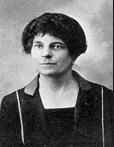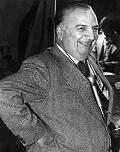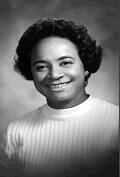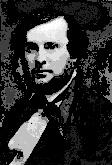Dec. 3, 2009
VCU School of Medicine students assigned to newly created medical societies
Groupings will foster camaraderie among the future physicians
Share this story
There was no Hogwart’s sorting hat in evidence. Instead, the first-year medical students at Virginia Commonwealth University were assigned to one of four new medical societies according to their career and specialty interests, learning styles and proficiencies.
The 50-student societies are a new VCU School of Medicine initiative designed to maintain the medical school’s close-knit camaraderie, even in the face of recent increases in class size.
“We have always been extremely proud of the individualized attention our students get and their satisfaction in their relationships with the faculty and administration of the school,” says Isaac Wood, M.D., senior associate dean for medical education and student affairs. Wood speaks from the special perspective of a school alumnus – he was a member of the Class of 1982 – who joined the faculty and is now responsible for the students’ educational and campus experience.
In response to warnings of an impending physician shortage from national groups like the Association of American Medical Colleges, medical schools across the country have begun expanding their enrollments. This fall, the VCU School of Medicine’s incoming class numbered 200, a gradual increase from 184 in 2003.
“To emphasize our rich history and tradition,” says Wood, “the societies bear the names of four distinguished individuals with ties to the school.”
Faculty nominations were pared down to a top-10 list that was submitted to a vote among the first-year students. The four resulting honorees are: Mary Baughman, who was among the first female graduates of what was then called the Medical College of Virginia, or MCV -- it became the VCU School of Medicine in 1968; Baruj Benacerraf, a medical school alumnus who went on to win the Nobel Prize in Medicine and Physiology; Jean Harris, the first African-American student admitted to the medical school; and Augustus L. Warner, the medical school’s first dean.
The new societies will be headed by school administrators and faculty who will meet with the students individually to assist with academic and personal issues. The medical school’s new educational building set to open in 2013 will also promote unity within the groups by providing dedicated classrooms, small-group and breakout areas.
The academic year will culminate in a weeklong competition to be known as the Society Olympics. The society that demonstrates its academic and physical prowess will have its name inscribed on the Medicos Trophy, which takes its name from the MCV intercollegiate football team whose remarkable record included defeating William and Mary, Wake Forest University and Virginia Tech.
Mary Baughman (1874-1956)

Among the first female graduates of the Medical College of Virginia, Baughman began medical school in 1918 at the age of 44 when MCV first opened its doors to women. She was the second woman to receive an appointment at MCV’s Memorial Hospital before joining the medical school faculty in 1923 as the first female clinical instructor, a privilege she shared with Dr. Charlotte C. Van Winkle. A birth control and family planning supporter, Baughman maintained an active practice in Richmond, participated in variety of community and civic activities, and was widely known for her advocacy of women’s rights.
Beruj Benacerraf (1920- )

A native of Venezuela, Benacerraf was denied admission to over two dozen medical schools before a family friend secured him an interview with the assistant to the president of the Medical College of Virginia. Benacerraf attended MCV during World War II when the school operated on an accelerated schedule and graduated in 1945. Following graduation, he served in the army before embarking on his remarkable career in medical research. In 1980 Benacerraf with his colleagues Jean Dausset and George D. Snell received the Nobel Prize in Medicine and Physiology.
Jean Harris (1931-2001)

After graduating with honors from Virginia Union University, Harris became the first African American student admitted to the School of Medicine at the Medical College of Virginia. She graduated in the top five of her class earning her degree in 1955. Harris spent three years as an intern and resident at MCV before completing her post-graduate training at the University of Rochester. She served on the School of Medicine faculty during the 1970s before becoming the first African American cabinet member in the Commonwealth of Virginia when Governor John Dalton appointed her Secretary of Human Resources in 1978. The National Governors’ Association recognized her work on the federal and state level by honoring her with the association’s distinguished service award in 1981. At the time of her death Harris was serving as mayor of Eden Prairie, Minnesota.
Augustus L. Warner (1807-1847)

Warner led the group of four Richmond physicians who organized the Medical Department of Hampden-Sydney College in 1838. A medical graduate of the University of Maryland, Warner taught in Baltimore and at the University of Virginia before relocating to Richmond. He served as the first dean and professor of surgery for the medical school that would become the Medical College of Virginia. Under Warner’s leadership the medical department secured a permanent home with the construction of the Egyptian Building in 1844.
Subscribe to VCU News
Subscribe to VCU News at newsletter.vcu.edu and receive a selection of stories, videos, photos, news clips and event listings in your inbox.







